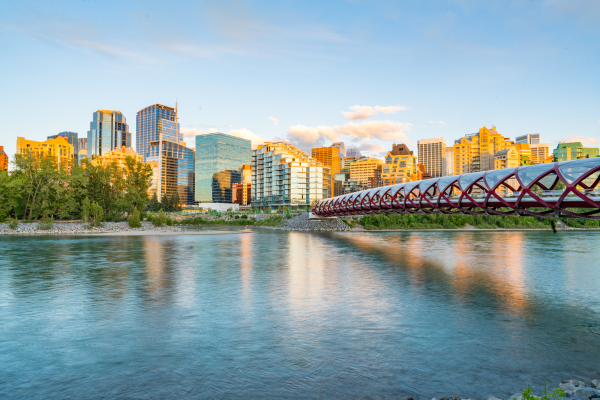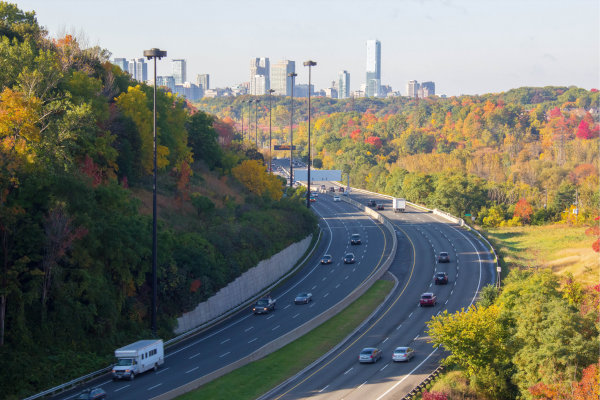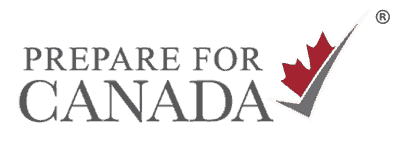Settle in Canada with Confidence and Ease
Choosing a City to Settle in Canada

Research and compare cities in Canada to ensure you select the one that meets your personal and practical needs.
Canada is a vast country with ten provinces and three territories covering 9.98 million square km. This makes Canada the world’s second-largest country by total area crossing six time zones. It is divided into five regions:
-
- Atlantic Provinces (New Brunswick, Newfoundland & Labrador, Nova Scotia, Prince Edward Island)
2. Central Canada (Quebec, Ontario)
3. Prairie Provinces (Manitoba, Saskatchewan, Alberta)
4. West Coast (British Columbia)
5. Northern Territories (Nunavut, Northwest Territories, Yukon Territory).
The largest cities in Canada include Toronto, Vancouver, and Calgary. There are also many other great cities to settle in that offer unique flavour, culture, social, economic, and demographic characteristics. Before you choose a city, it’s important to assess what is most important to you and your family. For example, do you prefer the energy of a large and bustling city, or do you seek a smaller city that offers a more relaxed lifestyle? Some personal and practical factors to consider include:
-
- Size of the city
-
- Local job market
-
- Local housing market
-
- Diversity and culture
-
- Cultural support
-
- Schools.
Select a City:
Check out these blog posts to research and compare cities. And, visit our Choosing a City section to discover more Canadian cities!
Access Healthcare

Get information about Canada’s public healthcare system including what is or isn’t covered and how to access medical services.
In Canada, public health care is paid for through provincial taxes that all Canadians pay. So basic health care services, like hospital visits and medical treatment, are free. Canadians value public healthcare because it contributes to a higher quality of life.
As a permanent resident, you can apply for public health insurance in Canada. Canada. Apply for provincial healthcare coverage soon after you arrive in Canada. Some provinces have a waiting period before your coverage begins so apply for a health card within your first week of arriving in Canada.
You need to show a provincial health card to get free medical services. So getting a health card is one of the first things to do after landing in Canada
With your health card, you’ll get many health care services. But without a health card, you’ll have to pay for medical expenses out of your pocket. Your health card gives you access to one of the best healthcare systems in the world. And, it provides you with both medical and financial protection.
Read more about steps to access free healthcare in Canada.
Learn about the Education System

The Canadian education system can meet your family’s learning needs from kindergarten to post-secondary education.
Canada is home to some of the world’s top schools. In Canada, each province oversees education and the standard of education is high across the country.
Generally speaking, the education system is divided into three levels:
-
- primary
-
- secondary, and
-
- post-secondary.
There are private and public education systems. Because the public school system is free, many people send their children to public schools in Canada.
The Canadian education system is also highly valued by Canadians. And, when you move to Canada, your children will access high-quality education to excel and prosper.
Also, you’ll have to enroll your children in school when you arrive. Read more and get an overview of the Canadian education system.
If you need help, a settlement agency can help you to register your children for:
-
- pre-school (daycare)
-
- kindergarten
-
- elementary (primary), and
-
- secondary school.
Learn about Driving in Canada

Become familar with the basics of driving in Canada to ensure your safety.
You will need a Canadian driver’s license to drive in Canada. However, you may have a license from a country that is part of a foreign license exchange agreement. Or, you may be able to get credits for foreign driving experience which can save you time and money when you get your Canadian driving license.
Driving in a new country can be stressful. And with this in mind, it’s helpful to know about the essentials of driving in Canada and learn about:
-
- Canada’s graduated licensing system
-
- How to get your driver’s license
-
- How to learn to drive, and more.
While there is much to know about building your new life, these key areas will help you settle in Canada with confidence and ease.
Visit our Settling in Canada resource page for webinars and other resources and gain confidence about your options, decisions, and plans to settle in Canada.
Frequently Asked Questions
Do I need private health insurance?
If you land in a province with a waiting period before you become eligible for public healthcare coverage, you may want to purchase private health insurance. Private insurance often covers medical expenses that public plans do not, and can provide peace of mind during the waiting period.
Should I rent or buy a home when I first immigrate to Canada?
While most immigrants rent for the first year while adapting to their new city, many aim to buy their own home.
Over 25 years (the usual amortization period for many homebuyers), the total amount of money that renters pay can exceed what they would pay for a mortgage. In some cases, mortgage payments can be cheaper than rent. In addition, rental fees generally increase over the long term. While mortgage interest rates may rise, so will the value of the property, and homeowners build equity.
After homeowners pay off the mortgage, they no longer make monthly mortgage payments, while renters continue to pay rent. These savings can contribute to your retirement plan.
But, before buying a home, ensure you want to remain in the city. Making a secondary move to a different region or city in Canada is expensive.
Read more about Renting or Owning a Home in Canada.
How do I prepare for the Canadian winter?
Depending on where you land in Canada, winters can be harsh for newcomers. Blowing wind can make temperatures feel much colder. Some cities can go down to -40C and some like Vancouver can at worst be -2C. Driving in the snow is something most newcomers have to learn, so check out our Winter Driving Tips.
When you land you will need to buy a good quality winter coat, warm winter hat, mittens or gloves, and winter boots for you and the family. Canadians often dress in layers to stay warm when outdoors. All homes, offices, and schools have central heating for comfort. Read more about Items for Your First Winter in Canada. When you connect with a settlement agency they will provide tips on what to buy and where to shop.





